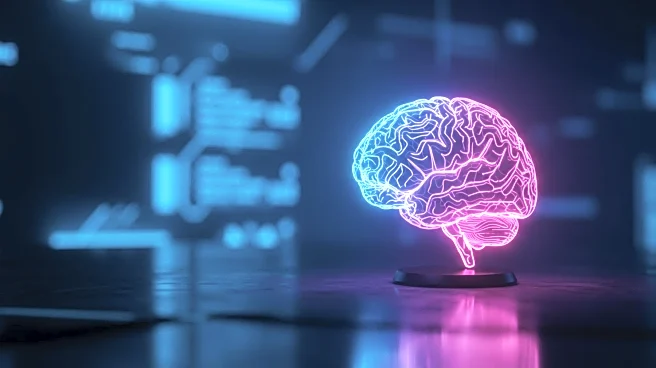What is the story about?
What's Happening?
OpenAI CEO Sam Altman has raised concerns about the use of AI models like ChatGPT in making personal decisions. Altman notes that some individuals are using AI as a therapist or life coach, which can be problematic given the technology's limitations. OpenAI is implementing changes to ensure ChatGPT does not provide direct advice on high-stakes personal decisions. Altman emphasizes the need for society to address the broader implications of AI's role in personal decision-making. He acknowledges the attachment some users have to specific AI models and the potential for AI to influence users in mentally fragile states.
Why It's Important?
The increasing reliance on AI for personal decision-making highlights the need for careful consideration of its impact on mental health and well-being. While AI can offer valuable insights, it is not equipped to handle complex emotional or psychological issues. Altman's comments underscore the importance of developing ethical guidelines and safeguards to prevent AI from reinforcing harmful behaviors. As AI becomes more integrated into daily life, society must navigate the balance between leveraging its benefits and mitigating potential risks. OpenAI's proactive approach to addressing these concerns is crucial in ensuring AI remains a positive force.
Beyond the Headlines
Altman's remarks reflect broader ethical and societal challenges associated with AI's growing influence. The use of AI as a life coach raises questions about the technology's ability to understand and respond to human emotions. There is a risk of users developing unhealthy dependencies on AI, which could impact their long-term well-being. OpenAI's efforts to refine ChatGPT's behavior are part of a larger conversation about the role of AI in society. As AI continues to evolve, stakeholders must consider its implications for mental health, privacy, and ethical use.


















